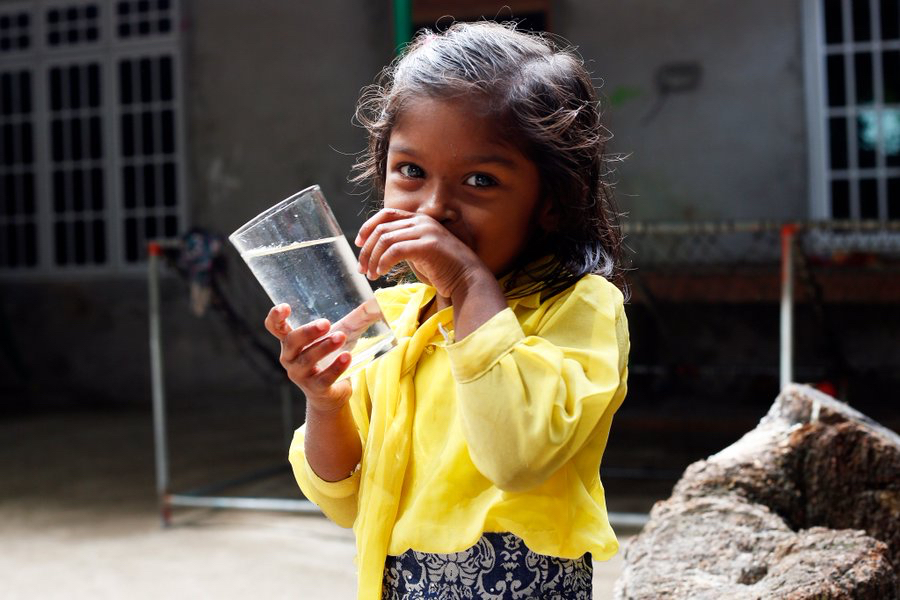GA. Maamendhoo, Maldives – United Nations Development Project (UNDP) in the Maldives is inaugurating Rain Water Harvesting (RWH) systems in eight islands of Gaafu Alif and Gaafu Dhaalu atoll.
The inauguration ceremonies of these systems are to be held during the upcoming three days, for the islands GA. Kondey, GA. Maamendhoo, GA. Nilandhoo, Gdh. Hoandehdhhoo, Gdh. Nadella, Gdh. Rathafandhoo, Gdh. Fiyori and Gdh. Faresmaathoda, of which, GA. Maamendhoo’s system was inaugurated on Wednesday.
Maamendhoo’s RWH system inauguration was presided by the Ministry of Environment, Maamendhoo Island Council, GA. and GDh. Atoll Councils, representatives of Fenaka Corporation Limited, other institutions and the United Nations Development Programme (UNDP) in the Maldives.
While an additional 17 islands are also to receive similar systems in the upcoming days under the Green Climate Fund (GCF), the systems provided to the eight islands are expected to provide an additional 150 tonnes of water storage for the communities, reducing the need to request for dry period water supply.
The handover of the RWH systems is part of the ‘Supporting vulnerable communities in Maldives to manage climate change-induced water shortages’ project supported by the Green Climate Fund (GCF) with UNDP, and directly implemented by the Ministry of Environment in the Maldives.
The completed installation of the RWH systems include provision of 35-year lifespan rolled, tapered panel water storage tanks, one 100 tonne capacity raw (untreated) water tank and a 50 tonne capacity product (treated) water tank.
These RWH systems follow an improved model that goes beyond the usual rainwater harvesting mechanisms in several ways. First, rainwater is harvested from existing roofs of public institutions and transported to a communal water treatment plant via gravity using underground pipes.
The system then uses ultrafiltration to filter out any impurities in the harvested rainwater, ensuring water safety. It is is also designed to divert the overflow of water from the system to groundwater recharge pits in the water treatment plant site and at the public institutions, thereby contributing to groundwater quality improvement.
The harvested rainwater is provided to the community via public taps located at various locations in the islands. The system has been designed to be compatible with any future networked Integrated Water Resource Management (IWRM) systems that may come in.
As part of next steps and capacity development, the project will continue to provide training on operations and maintenance to the utility companies, and training on management of the systems to the Island Councils. The project is also developing several interactive tools to enable communities to manage their own water resources. The project will look at building capacity within the community and the country, by establishing water management courses within local institutions.
This GCF project aims to provide safe and secure drinking water to 105,000 people across 29 of the most vulnerable islands that face climate change-induced water shortages every year. In addition to these 8 islands, the project is nearing completion of establishing rainwater harvesting and storage systems in another 17 islands.
Four islands in the north of Maldives will also have full Integrated Water Resource Management systems with piped water to households, which are also close to completion.
The project is designed to facilitate decentralised water supply management mechanisms and practices so that reliance on central provision of emergency water is minimized during the annual dry seasons. A longer-term objective of the project is also to improve groundwater quality through managed recharge mechanisms.





